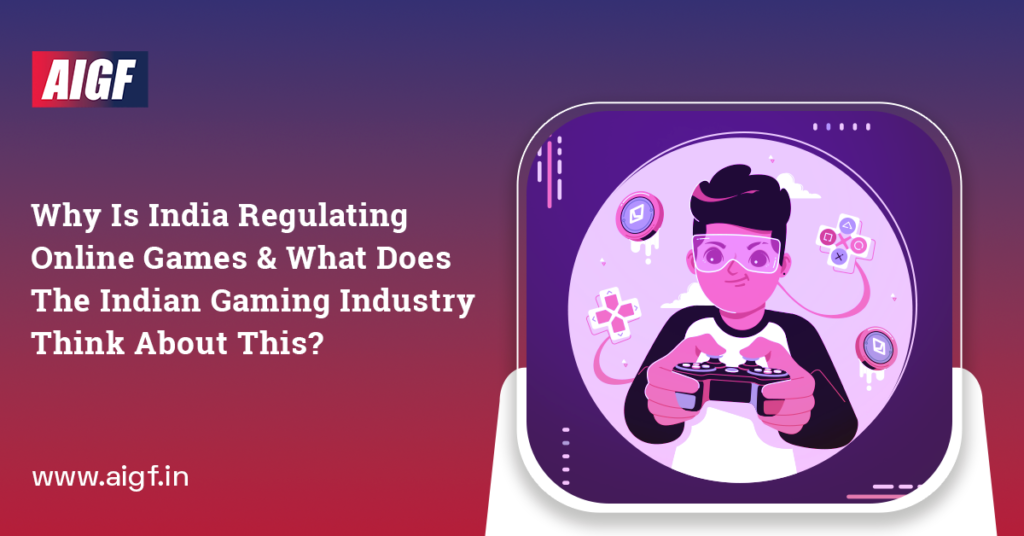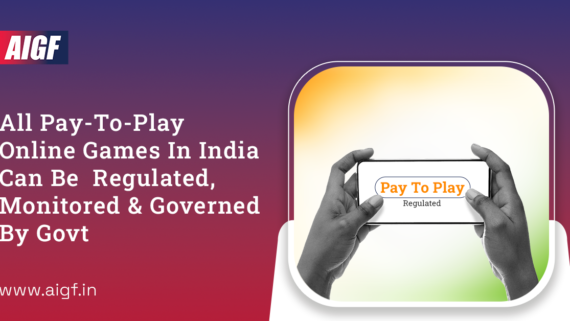Roland Landers, CEO of the All India Gaming Federation, discusses the tax implications of this matter. He comments, “If taxes are done rationally, it will be a big boost to the industry; also, curbing the grey market is vital for the betterment of the sector.” He reasons that “there is a grey market in the online gaming space as well, which consists of people (brands) who are off-shore” and “they do not pay taxes.”
Why Is India Regulating Online Games And What Does The Indian Gaming Industry Think About This?
Recently, we told a tale about the Indian government regulating online games among kids. Thus, here’s a detailed explanation of why we think the centre is proposing a regulatory framework like this and what the Indian gaming industry thinks about it.
To begin with, why?
How is India planning to regulate online gaming?
The MEITY has set up a panel to frame regulations “against prohibited gaming formats” and mandatory KYC (Know Your Customer) norms for players, among other things.
These are reportedly 108-page reports drafted on August 31, 2022, and could come into full effect by February 2023.
An ET report quotes a government official related to the matter saying, “Addiction (to games) has to be dealt with—whether we do it partly in the IT Rules and partly in the DIA (Digital India Act), it is going to be done.” He also mentioned that since this is a novel issue, it calls for “innovative solutions” and consultation with all the stakeholders, such as parents, schools, gaming companies, and adult gamers.
Here are some of the checks and balances suggested:
Revealing the time players have spent on each application through usage charts (duration per session). This ought to be finished in a manner that doesn’t urge the youngsters to play more.
KYC form or different means to confirm the age and different subtleties of the players
Gaming organizations ought to “host, display, upload, publish, transmit, or share an online game” with respect to Indian laws.
Games that decide pay-to-earn based on the result are likely to be restricted soon. Thus, the regulations could attempt to keep such games beyond the reach of kids. In Minister of State for Skill Development and Entrepreneurship of India Rajeev Chandrasekhar’s words, these games are a “no-go.”
If players have any issues, there ought to be a grievance officer, a chief compliance officer, and a nodal contact person who will be a point of contact with law enforcement agencies.
The regulatory body intends to plan a defensive system for women gamers too.
Why is India planning to regulate online gaming?
In general, the following are some of the concerns about online gaming that the guideline considers:
Cyberattacks: According to a TOI report, out of 703 Indian gamers surveyed in 2021, four out of five reportedly lost some money to the tune of about 7,800. Around 35% of the respondents professed to have been infected by malicious programmes on their gaming gadgets. A typical vector of cyberattacks is phishing.
An Indian study discovered that approximately 3.5% of Indian teenagers suffer from Internet gaming disorder. This is a driving reason for tension and doom among youngsters.
Monetary Loss: The above two elements could deplete the player’s wallet. Indeed, misrepresentation and the discontinuation of services can result in monetary loss.
Presently, one of the issues weighing down the regulation could be how different Indian states have clashing rules about games, including explicit pay-to-earn rules. There is no clear consensus about whether a game is a chance- or skill-based.
Likewise, some of the off-shore players in the space are ready to evade tax due to the confused state of affairs.
While we are talking about this point, the Chinese regulation of online games strikes a chord. For the unenlightened, this occurred:
China Is Regulating Online Gaming
Socially, China considers online games as “spiritual opium” that diverts youngsters’ minds from focusing on practical activities.
Following that sentiment, the main set of rules was passed in 2019 by which any minor player under the age of 18 was allowed to play only one and a half hours on work days and three hours on weekends. Owing to alleged pressure from concerned guardians, the Chinese government expanded the limitations that restricted the permitted gameplay hour to 8–9 PM on Fridays, Saturdays, and Sundays.
This year, CNG, the nation’s premier research and data provider, presented the case that the new regulations have achieved “remarkable results” in curbing online gaming habits.
It seems like India has probably drawn some inspiration from the new Chinese clampdown on the online gaming industry in the country. Anyway, how about we find out what the various stakeholders in the Indian context think?
Indian Gaming Industry’s Reaction To Online Game Regulation
Here’s what the Indian Gaming Industry has to say in the new regulatory discussion:
Salone Sehgal, Founding General Partner at Lumikai, shares her company’s support for the new regulations, saying, “Lumikai is heartened to see our research and recommendations assist in shaping policy and regulation.
Parth Chadha, CEO and Co-Founder of STAN, also lauded the new rules as “steps to uplift these sectors (gaming and eSports) with increased regulatory clarity.”
In an interview with News18 Tech, Roland Landers, CEO of the All India Gaming Federation, discusses the tax implications of this matter. He comments, “If taxes are done rationally, it will be a big boost to the industry; also, curbing the grey market is vital for the betterment of the sector.” He reasons that “there is a grey market in the online gaming space as well, which consists of people (brands) who are off-shore” and “they do not pay taxes.” In a different statement, he added that the regulations would “hopefully reduce the state-wise regulatory fragmentation that was a big challenge for the industry.”
Well, it’s too early to comment on how the new gaming regulations would play out and what difference they would bring about. In time, we will.
Credit: Skoar











Comments
Comments are closed.